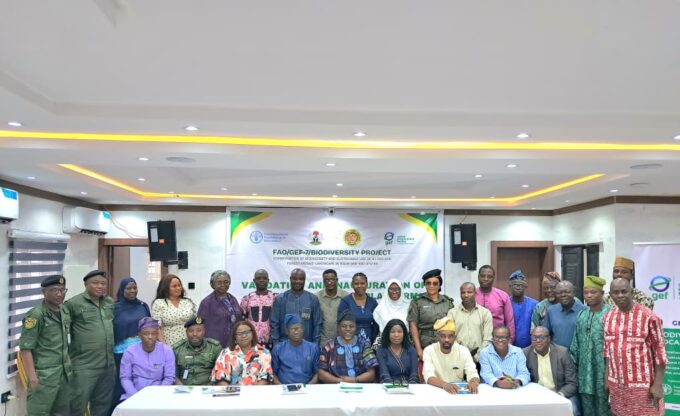By Merit Ibe
To reposition Nigeria’s maritime industry and stimulate economic growth, the federal government, through the Ministry of Marine and Blue Economy, is advancing a comprehensive Nigeria–China Maritime Strategy designed to unlock over $2 billion in shipping investments. The initiative also aims to fast-track indigenous vessel ownership and elevate Nigeria’s status as a leading maritime hub in West and Central Africa.
The proposal was formally presented to the Minister of Marine and Blue Economy, Adegboyega Isiaka Oyetola, at the Ministry’s headquarters in Abuja recently.
The deal is a product of a strategic collaboration between the Nigeria-China Strategic Partnership (NCSP) and the Global Investment Advisory Community (GIAC), with Nigerian implementation being spearheaded by Anabel Capital.
The strategy sets out to catalyse local participation in the shipping sector by facilitating access to capital for Nigerian-owned shipping companies and linking them with established Chinese shipyards, charter firms, and investment banks. It also outlines a significant investment in the development of maritime training institutions and the procurement of modern training vessels to support human capital development in the sector.
Describing the initiative as transformative, Oyetola said it aligns squarely with the Ministry’s priorities to reform the sector, deepen local content, and drive sustainable economic development.
“This strategy is a game changer. It perfectly aligns with our Ministry’s strategic priorities to drive sectoral reform, attract meaningful investment, and promote economic growth. We must deepen public-private collaboration, scale indigenous capacity, and move aggressively towards Nigerian ownership of commercial vessels”, he said.
The strategy’s economic blueprint outlines a sweeping plan to create thousands of maritime jobs, train a new generation of globally certified Nigerian seafarers and build a self-sustaining shipping ecosystem led by Nigerian operators. It projects the delivery of $2 billion in vessel investments, $20 billion in freight contracts for local operators, as well as hundreds of millions of dollars earmarked for maritime training and the acquisition of specialised training vessels.
Oyetola stressed the urgency of leveraging partnerships and private sector capital to unlock the industry’s potential, noting that Nigeria’s maritime sector remains largely underutilised despite its vast capacity to generate foreign exchange, create jobs, and drive infrastructure development. He underscored the importance of strategic diplomacy that yields tangible, private-sector-driven outcomes, adding that the initiative resonates strongly with the Renewed Hope Agenda of President Bola Tinubu.
Present at the strategic meeting were senior government and industry stakeholders, including Mr. Olufemi Oloruntola, Permanent Secretary of the Ministry; Mr. Munirudeen Bola Oyebamiji, Managing Director and CEO of the National Inland Waterways Authority (NIWA); Mr. Joseph Tegbe, Director-General of the Nigeria-China Strategic Partnership; Dr. Nicholas Okoye, Managing Director of Anabel Capital; and Ms. Lela Omo-Ikirodah, Project Manager at NCSP.
















Leave a comment